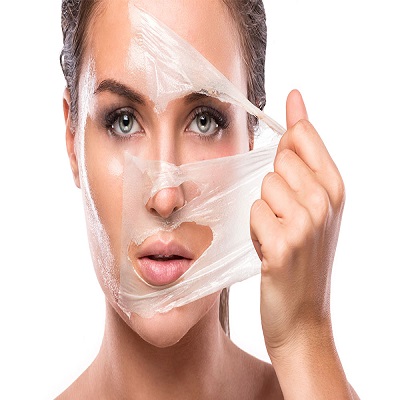Chemical peels are widely regarded as effective treatments for rejuvenating the skin, treating acne, hyperpigmentation, and signs of aging. However, if you are pregnant or breastfeeding, safety becomes the foremost concern when considering any cosmetic procedure. Many expectant and new mothers wonder, are chemical peels safe during pregnancy or breastfeeding? To answer this important question and provide reliable guidance, it is essential to understand the effects of chemical peels and the specific considerations for these sensitive periods. For professional and safe skin treatments, including Chemical Peels in Islamabad, it is always advisable to seek expert advice from qualified clinics.
What Are Chemical Peels?
Chemical peels involve applying a solution containing acids such as glycolic acid, salicylic acid, or trichloroacetic acid (TCA) to exfoliate the top layers of skin. This process stimulates new skin cell growth, improves skin texture, and addresses concerns like acne scars, pigmentation, and fine lines. The strength and depth of chemical peels vary from light superficial peels to deeper peels requiring extended recovery.
Why Consider Safety During Pregnancy and Breastfeeding?
Pregnancy and breastfeeding are unique physiological phases when the body undergoes hormonal changes that affect the skin and overall health. The safety of cosmetic treatments during this time is influenced by:
- Potential absorption of chemicals into the bloodstream
- Effects on the developing fetus or nursing infant
- Increased skin sensitivity and altered skin reactions
Given these factors, caution is necessary when evaluating any skin treatment.
Are Chemical Peels Safe During Pregnancy?
The short answer is: most chemical peels are generally not recommended during pregnancy. Here’s why:
1. Limited Research on Safety
There is a lack of comprehensive research and clinical trials specifically studying the safety of chemical peels on pregnant women. Because the effects on the fetus are not well documented, dermatologists often advise avoiding chemical peels to err on the side of caution.
2. Potential Risks of Ingredients
Some common ingredients in chemical peels, such as salicylic acid, have been linked to risks during pregnancy if absorbed in large amounts. Salicylic acid is a beta hydroxy acid that can cross the placenta and may pose risks during fetal development. High doses of oral salicylates are contraindicated in pregnancy, so topical applications are also treated with caution.
Glycolic acid and lactic acid are alpha hydroxy acids (AHAs) commonly used in lighter peels and are considered safer, but the lack of conclusive safety data means many practitioners avoid chemical peels entirely during pregnancy.
3. Increased Skin Sensitivity
Pregnancy hormones often cause the skin to become more sensitive and reactive. This can lead to increased irritation, redness, or hyperpigmentation after a chemical peel, making the procedure less predictable and potentially harmful.
Are There Safer Alternatives During Pregnancy?
For those looking to address skin concerns while pregnant, dermatologists usually recommend gentler options such as:
- Mild facials using non-irritating products
- Light exfoliation with gentle scrubs or enzyme-based peels
- Topical treatments like azelaic acid (considered safe in pregnancy)
- Good sun protection to prevent pigmentation
These alternatives pose less risk to mother and baby while helping maintain skin health.
Are Chemical Peels Safe During Breastfeeding?
Breastfeeding presents a different set of considerations, but many of the same cautions apply:
1. Absorption and Exposure
The main concern is whether the chemicals in the peel can be absorbed into the bloodstream and passed through breast milk. Although topical chemical peels generally have limited systemic absorption, the risk cannot be entirely ruled out. Ingredients like salicylic acid may pose a theoretical risk, so caution is advised.
2. Skin Sensitivity and Healing
Breastfeeding mothers can experience hormonal fluctuations that affect skin sensitivity and healing, similar to pregnancy. This may increase the risk of adverse reactions to chemical peels.
3. Expert Recommendations
Most dermatologists recommend avoiding medium and deep chemical peels during breastfeeding. Light superficial peels with safer ingredients such as glycolic acid may be considered after consulting a healthcare professional.
How to Approach Chemical Peels During Pregnancy or Breastfeeding?
If you are pregnant or breastfeeding and considering a chemical peel, follow these steps:
- Consult Your Healthcare Provider: Always inform your OB-GYN and dermatologist about your pregnancy or breastfeeding status before any treatment.
- Choose Mild Treatments: If proceeding with a peel, opt for superficial peels with AHAs that have a better safety profile.
- Patch Test: Perform a patch test to monitor any adverse skin reactions.
- Professional Supervision: Ensure the procedure is conducted at a reputable clinic by trained professionals experienced with treating pregnant or breastfeeding clients.
- Post-Treatment Care: Follow strict sun protection and moisturizing protocols to avoid complications.
Why Professional Clinics Are Essential
The choice of clinic can significantly impact treatment safety and results, especially during sensitive periods like pregnancy and breastfeeding. Professional clinics such as Chemical Peels in Islamabad provide thorough consultations to evaluate your skin condition and medical history before recommending any treatment. They prioritize patient safety and tailor the approach to minimize risks.
Potential Risks of DIY Chemical Peels During Pregnancy or Breastfeeding
Attempting to perform chemical peels at home during pregnancy or breastfeeding is highly discouraged. Over-the-counter products may contain inappropriate acid concentrations or ingredients that are unsafe, and improper application can cause burns, infections, or worsened skin conditions.
Conclusion
The question “Are chemical peels safe during pregnancy or breastfeeding?” requires careful consideration of both the benefits and potential risks. While most chemical peels are not recommended during pregnancy due to limited safety data and potential risks to the fetus, some mild treatments may be cautiously considered under expert guidance during breastfeeding. It is crucial to prioritize safety by consulting healthcare professionals and choosing gentle alternatives to maintain healthy skin during these sensitive stages.





Comments